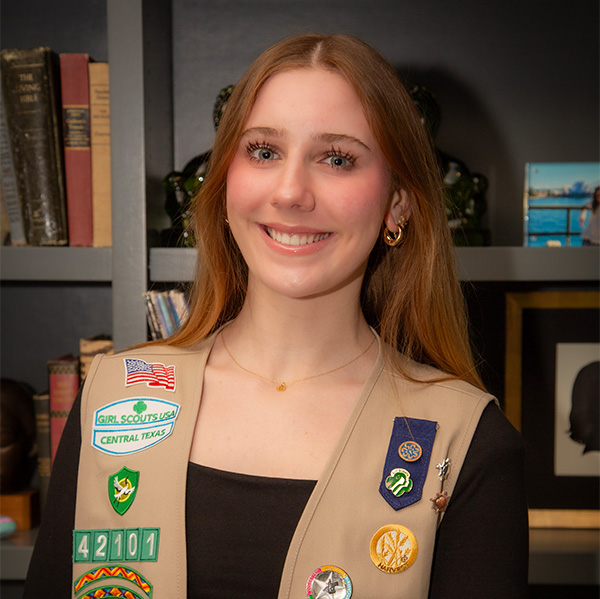Handling Kids’ Food Allergies in Your Girl Scout Troop
By Gretchen E., Gold Award Candidate
Unless it impacts you or someone in your family, you may not know much about food allergies. I’ve been a Girl Scout since Kindergarten and I have a severe peanut allergy. I’ve had several accidental exposures that were preventable if people understood more about food allergies. I’ve decided to focus my Gold Award Project on growing knowledge and understanding about food allergies. I interviewed my troop leader for suggestions on how she handles a troop member with a food allergy. Here are 6 tips to make sure you create a safe environment for Girl Scouts and all kids with food allergies:
Ask about food allergies
Ask your troop members and families if anyone has a food allergy. This is often a forgotten step but should be done as a troop is formed or if someone new joins.
Talk with the parent or caregiver about possible reactions and how to recognize signs of anaphylactic shock. Learn what type of medication will be available during troop events and activities and learn how to use any epinephrine devices if applicable. Take time to educate yourself. There are so many resources available [link to https://www.foodallergy.org/resources].
Decide your strategy
Decide how you will handle the allergy for your troop. A decision to consider is whether you will avoid the allergen altogether. For example, you could decide as a troop to become peanut free. This is not a decision the troop leader has to make alone and should include a discussion with the parent or guardian of anyone who has an allergy.
Agree with any other troop leaders or involved parents to be consistent in your approach on handling food allergies at snack times, while camping, at parties, and other occasions.
Overcommunicate the allergy
Let all parents and troop members know someone in the group has an allergy. The point here is not to single someone out, it is to keep everyone safe.
If you have an event or activity where food is involved, make sure to remind everyone about the allergy. If someone is bringing in homemade food, require them to label with all ingredients. For store bought food, labels should be kept and displayed. If the troop decides to exclude the allergen, it is often up to the troop leader to review any food involved.
Educate the troop about the allergy
This is a great chance to teach the troop about food allergy best practices, like washing hands after eating, not sharing foods, and using clean utensils and cooking areas to prepare foods. Consider leading the troop through the Food Allergy Awareness Girl Scout Patch available through FARE [link to: https://www.foodallergy.org/our-initiatives/awareness-campaigns/food-allergy-awareness-girl-scout-patch].
Revisit and Remind
Revisit your approach over time as the kids grow up and become more responsible. Increased independence means you might have less control over who eats what when. New people who get involved with the troop may be less experienced and you may need to re-educate.
Avoid Cross Contact
Cross contact is when the allergen mixes with food that does not contain the allergen. Cross contact is an easy way to cause a reaction from an allergy because the amounts can be so small you can’t see them. There are 2 types of cross contact to avoid and this is especially important to discuss with anyone bringing in food prepared at home:
- Direct – for example if croutons were added to a salad then taken out.
- Indirect - A cooking utensil, hands, or a food-preparation surface that has or had the food you are allergic to on it is used to prepare food. For example, it is not enough to wipe off a knife that was used to make a peanut butter and jelly sandwich if you are trying to avoid peanuts. The knife should be washed with soap and water.
Having a troop member with a food allergy can seem intimidating at first. With a little education and discussion as a troop you can create a safe space for a Girl Scout with a food allergy.


